#netflix you cowards
Text
why would you wait for this long to cancel it?? like genuinely dead boy detectives received such a good feedback, it got really high ratings, we deserved that s2
what’s the point if you just keep cancelling everything??
38 notes
·
View notes
Text
🚨 GUYS 🚨
there's literally a place in the "help center", where you can complain about the lack of certain series/films.
the more people write Warrior Nun the better i believe. it's one of the few things we can do to Save Warrior Nun!
here you have a link.
you can do it from a phone or a computer



let's do the Lucifer.

#save warrior nun#renew warrior nun#warrior nun#netflix you cowards#netflix#lghtq+#lesbian#bisexual#let's go lesbians#women power#lucifer
150 notes
·
View notes
Text
fuck off you’re telling me we won’t ever get to see these beautiful people together again?
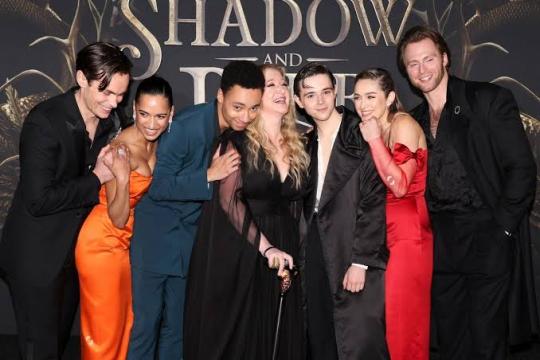
Literally fuck off Netflix you deserve to burn to the ground
#six of crows#Grishaverse#leigh bardugo#shadow and bone#shadow and bone season 3#six of crows spinoff#soc spinoff#renew sab Netflix you fucking cowards#freddy carter#amita suman#kit young#danielle galligan#calahan skogman#jack wolfe#crooked kingdom#soc#ck#sab#Netflix#Cor speaks
2K notes
·
View notes
Text
Something cool about Blue Eye Samurai is how sex is juxtaposed with the end-goals.
I really love how our three protagonists are all obsessed. And that obsession defines them, torments them, and are subsequently reborn through their obsessions.
Mizu, of course, is obsessed with the concept of revenge. It's not even about getting even or getting justice as some might use to justify the bloody road taken—it is simply about seeking satisfaction for Mizu. She cuts a bloody swathe across Japan because of what the Four White Devils did to her mother and herself. She does not concern herself with the ramifications of her wrath but merely charges forward, leaving behind a trail of viscera and gore behind her.
Like I said before, her vengeance and obsession with satisfaction is not painted by the show as wrong. It is how she allows it to affect others along the path. It's why the episode with Madame Kaji is so enlightening; Mizu should not tackle this quest as a vengeful revenant; an onryō. She has let the world define her as a monstrosity and so she embraced it, when Swordfather and Madame Kaji knew what the correct path was to satiate her need for vengeance. Treat her sword as the Artisan's tool it truly is. Treat her body the way an Artist would treat their canvas.
Madame Kaji and Swordfather are both outcasts, for being a woman and a blind man. Yet they found strength in their exclusion, becoming single-minded in their fields of art. Because sex is art and swordsmithing is art. It's what makes Mizu's body writing scene so fucking good.
Artistic vision becomes stagnant when one pulls from only one source. They become rigid and unbending when Mizu, like her namesake, must be fluid. She has shown fluidity in her use of her gender and her morals, but cannot apply that same flexibility towards her goal. Throughout season one, she was becoming an uninspired artist, merely painting the world in hues of scarlet. In a world that forces Women to be either Wives or Whores, Mizu chose to be a Warrior—but a warrior fights for a cause, whether it be just or otherwise. A soldier fights in an army. Mizu is neither of these things. She is an Artist first and foremost, and her medium is Death. Sex, something Mizu was at first hesitant before her failed marriage, and something she actively avoided afterwards, is what gives her a new perspective. Like an Illustrator studying life to better draw their intended worlds, taking inspiration from wherever one can find it.
Taigen and Akemi are also equally affected by the artistry of sex, as befitting of Mizu's fellow protagonists.
Akemi is quite obviously Mizu's narrative foil. Mizu chases after revenge like a bloodhound whereas Akemi longs for freedom like a bird in a cage. Both are fierce women who are unsatisfied with their lot in life, with their sex and gender being used against them in their lives. Literally, the episode "The Tale of the Ronin and the Bride" is a fucking triple entendre:
Mizu is the Ronin as well as the Bride.
The play showcases the tale of the Ronin and the Bride.
It is also Mizu as the Ronin and Akemi as the Bride.
And when Mizu finds her center as she melts down her blade and engages in body writing, this scene of enlightenment is juxtaposed with Akemi laying with her new husband Takayoshi. Both, in this moment, are taking control of their lives through sex. They are both taking control of their futures through the ways Madame Kaji taught them. Mizu and Akemi are both rebels against this oppressive society, and are both talented artists with their body. Whether that be sex, politicking, or ass-kicking.
Taigen, like the two women before, finds freedom through it but in a more subtle manner.
Where Mizu and Akemi are narrative foils, both using sex as a form of art and escape, Taigen finds liberation through his awakening.
Like the closeted bisexual man he is, he begins his journey of self-realization when he first encounters Mizu at the Dojo.
Every single battle these two have is purposefully rife with sexual tension. All his life, Taigen has been taught that a man must live with honor. That he must take control of his life and his identity, or he will have failed and that he is better off dead than to live with such shame.
Taigen is just as much a victim of the Patriarchal society around him. Mizu rails against it violently. Akemi seeks to run away from it all. And Taigen, with the privilege given to him by his manhood, chooses to become a perpetrator, enabling the vicious wheel of society to keep moving forward.
His obsession with honor leads him to hunting down and even protecting Mizu. Mizu is no doubt the better warrior, but even she knows she owes so much to Taigen. The blockhead not only did everything to protect her in the valley, but also sealed his lips shut even under the duress of torture. His obsession with honor becomes an obsession with Mizu.
His regrets over tormenting her over her looks and ethnicity as a child. His shame in having lost so decisively in his own dojo. Taigen was a man born with nothing and climbed up to the top with every advantage he could muster, and suddenly it's all ripped away by this one vengeful spirit passing by.
Taigen learns to surrender control around Mizu. He begins to discover his own sexuality and purpose around Mizu, redefining what honor really means to him now that he, as a man, has a budding attraction towards the man who beat him.
Mizu's Vengeance. Akemi's Freedom. Taigen's Honor. In all three, Sex becomes a catalyst in redefining what each of these concepts truly mean to them all. It's not just sex of course, but it is undeniable how the writers keep juxtaposing sexual acts and thoughts with massive character moments.
It changes how Mizu chases after her Vengeance. It recontextualizes how Akemi can be Free. It showcases the absurdity of the Honor forced upon Taigen.
It's so fucking refreshing seeing Sex not used as fanservice or shoe-horned in just to further a stale, poorly written cis-heterosexual romance; but used as a plot point that cannot be ignored. An impetus that fuels the narrative.
Moving forward, I'm curious as to how sex will be used.
The next few ideas aren't as sound or organized because I'm neither Asexual nor Genderfluid, so please if anyone reads this who understands it better, feel free to point it out.
I think it'd be cool if Mizu met the inverse of Madame Kaji. A person who is apathetic to sex. Sure, Swordfather has shades of this, but I'm tired of the person with disabilities also being on the Asexual spectrum. And I'm not saying that Ace or Graysexual people with disabilities don't exist! But they always tend to be written as having some form of disability (Varys from ASOIAF) or a Robot.
Just as artists need a variety of sources to pull inspiration from, I hope in the next seasons we get to see different perspectives on sex and gender. In London, it feels like Mizu finding the other half of herself, and with that having a better way of tackling her own identity. Whether it be gender, sex, combat, etc.
Basically what this inane rambling amounts to is that Blue Eye Samurai tackles sex and violence and revenge and obsession in ways that most media has yet to truly do. So that was pretty cool.
#blue eye samurai#blue eye samurai spoilers#blue eye samurai season 2#mizu#mizu blue eye samurai#akemi#taigen#metal#media analysis#character analysis#blue eye samurai meta#netflix are cowards for not announcing season 2 immediately#come on dickheads#the fans and the creators have been fighting for the green light#hand it over#you cocks#paprikash ramblings
584 notes
·
View notes
Text
Liam is taking over as Geralt in Season 4. Liam will give him a different face, and will give him a different voice.
That means that Geralt will sound different. And since Geralt will sound different, I feel this is the perfect opportunity to *pauses to look pointedly at Netflix* let Jaskier have Joey's Geordie accent.
#let jaskier be geordie you cowards#jaskier#joey batey#the witcher#twn#the witcher netflix#julian alfred pankratz
54 notes
·
View notes
Text
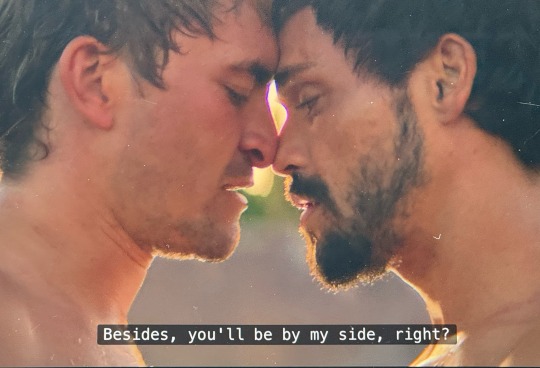
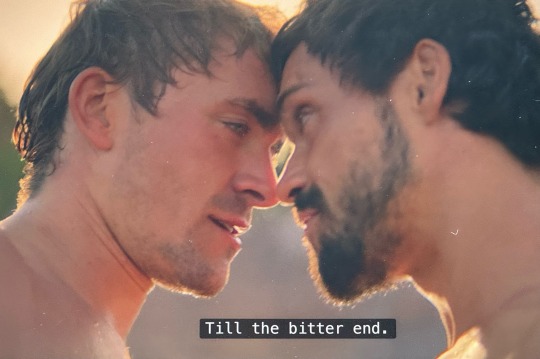
No, yeah, I’m fine. Totally.
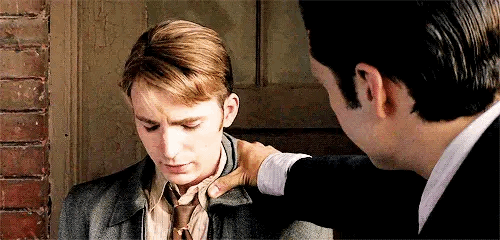
#alexander and hephaestion#stucky#Marvel you cowards#stucky was in the narrative#soldier boys is my otp#I HAVE A TYPE OKAY#alexander the making of a god#thank you Netflix for not punking out#those were marriage vows and you know it
126 notes
·
View notes
Text
Okay, so what Netflix needs to do, if it wants any hope of salvaging the mess they made with The Witcher, is they need to give Joey Batey absolute creative control of Jaskier's music.
Loose that man's full power on your show, Netflix, and nobody's even gonna be looking at Geralt's face.
#joey batey#netflix you cowards give us the bard#jaskier is the main character#we know it and Netflix needs to catch up#jaskier#twn#the amazing devil#tad
609 notes
·
View notes
Text
with jim henson trending on tumblr I urge everyone to watch the dark crystal (2019) it was produced by the jim henson company and netflix and one of the producers is jims daughter. if you like epic fantasy and miss practical effects and shows where it’s clear so much soul and hard work was poured into it? watch the dark crystal. It’s really good and it never got the love it deserved
#people who diss it because it’s with puppets How does it feel to be sooo Boring!!#what a great way to tell fantasy stories with different species and creatures c’mon it makes so much sense!!#and the voice acting is wonderful!#it’s just really really good and people have barely even heard of it!#jim henson#the dark crystal#the jim henson company#Liza henson#the dark crystal age of resistance#labyrinth#the muppets#Netflix#Sesame Street#also Disney I hte you and Netflix is a coward for cancelling this show
803 notes
·
View notes
Photo
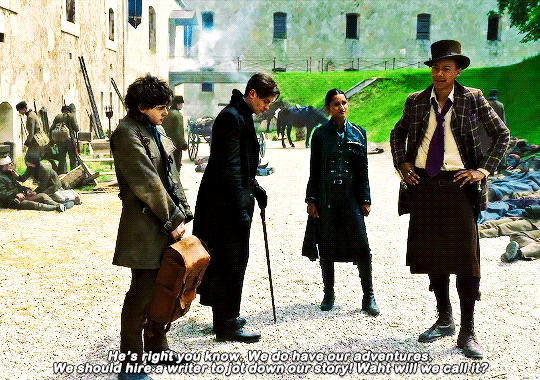
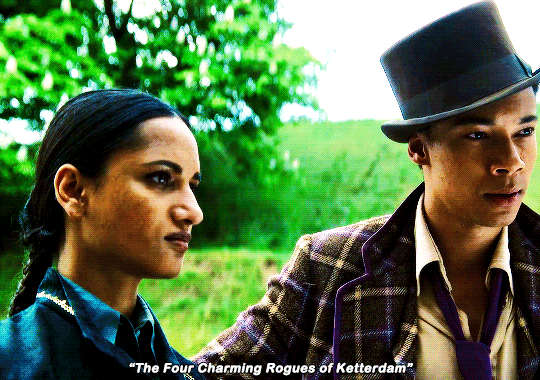
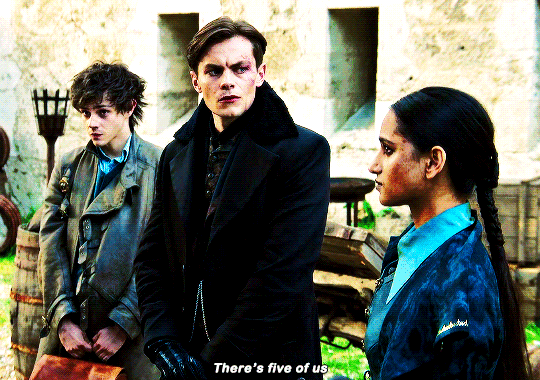
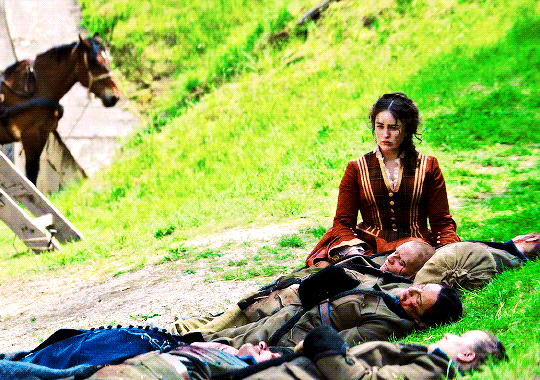
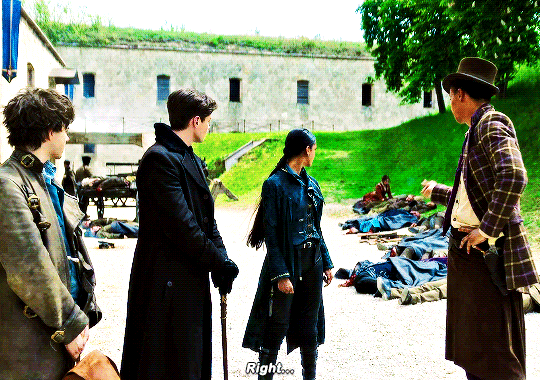

#GIVE US SIX OF CROWS
#netflix don't be cowards!!!! you teased this to us now you gotta give us the soc spinoff!!!!!#sabedit#socedit#shadowandboneedit#sixofcrowsedit#shadowandbonesource#shadowandbonecentral#shadow and bone#six of crows#jesper fahey#kaz brekker#inej ghafa#nina zenik#wylan van eck#the crows#my gifs#my edit
230 notes
·
View notes
Text
OMG WE ARE TRENDING!!
NUMBER 7!!

LOVE YOU ALL MY LOVELIES LET'S GOOOOOO!!!
27 notes
·
View notes
Text
Bring back Tissaia with the white hair and make her the new witcher challenge @ Lauren and the writers team
86 notes
·
View notes
Text


but it was, in fact, everything for us
#alba you're so real for that#thank you#thank you for what you mean to me#netflix you cowards#warrior nun#lgbtq#alba baptista#renew warrior nun#netflix#bisexual
39 notes
·
View notes
Text
At this point, I'd be happy with a song. Half a song. A single line of harmonies. A NOTE.
22 notes
·
View notes
Text
I'll be referring to Mizu by her canon identity (she/her) since that is what the series creators choose to call her.
My favorite thing about Blue Eye Samurai is that the plot does punish Mizu for her single-mindedness and wrath against the Four White Devils. Ringo is horrified by her act of allowing Akemi to be forcefully brought to the Shogun because, in her eyes, Akemi would be safer there—but it can also be stated that she did this because her path to revenge cannot be bogged down by things such as friendship or affection.
It does not necessarily mean that the plot wishes to punish her for her vengeance itself.
Blue Eye Samurai, I believe, isn't going down the route of Vagabond or Vinland Saga (two special stories close to my heart) where the protagonists there learn the value of forgiveness and letting go of their hatred. Here, Mizu is even explicitly called an Artisan, her works are of Death. Swordfather calls himself an artist of Blades, whereas he refers to Mizu as an Artist of the Sword, both single-minded in their endeavors.
Anger must fuel her, but it cannot blind her. Like an artist, her strokes must be purposeful. Her hand steady and controlled. Her canvas cannot be tainted with the blood and wounds of the innocents. Not Ringo's. Not Akemi's. Not Taigen's.
Don't get me wrong, I love narratives that explicitly put down the thought of vengeance. That these stories dissuade the thought of "An Eye for an Eye" and pushes their protagonists down a path of wisdom and peace.
But anger and vengeance and *satisfaction* are also very human things to feel and pursue. The Princess Bride showcases a tale of vengeance without causing collateral damage. I believe Mizu is learning to move away from her identity as a mere instrument of punishment; a spirit of revenge. Instead she chooses to become an Artist.
It's why she takes up body writing at the series finale. Art must be pulled from different perspectives and sources. One cannot be stagnant in their field. Just like how an Archaeologist will have some mastery over Anthropology to better understand the past, an artisan needs to know other expressions of art.
I think that's beautiful. Not dissuading vengeance, but refining it. Directing it. Guiding her bloodlust into masterful strokes of her blade.
93 notes
·
View notes
Text
I do love the netflix avatar in my own way because it provides me with enrichment in the same way brain puzzles do for chimps. Like something is WRONG here and it's your very special job to figure out why! And then you will get juice reward!!
#its been making me think about the cartoon a lot lately for the sake of comparing and contrasting#so thats great#it was a very good cartoon#i do actually think that its stupid to complain about how its objectively bad when an adaption makes changes to the original#because that SHOULD be the point of an adaption. to try things in a new way and somehow improve on the story#but i think its funny how this show is constantly like ''we're gonna take a DIFFERENT route with this character''#and then the DIFFERENT ROUTE leads to them driving the car off a cliff#we will not get to our destination this way bestie#out of all the changes theyve made to the original i think the most misguided and overall dogshit is how theyre portraying Azula#it annoying when people say ''theyre ACTUALLY writing her as a victim of her father's abuse this this''#''shes ACTUALLY sympathetic this time''#girl i hate it here#netflix show is a COWARD for showing Azula this way in season 1#not that its not somewhat in character. if ozai started playing mindgames with her she probably would start spiraling like this#the problem is that we shouldnt be SEEING IT!!#avatar is regarded as Baby's First Media Analysis for a lot of people#and boy oh boy there was a lot of analytic meat to Azula's character#but the netflix version? this is a skeleton!! bones!!!#like obviously if you were watching the cartoon as an adult it would be immediately apparent#that this 14 yo girl acting not only like a grown woman but a calm calculated genocidal tyrant is very concerning#and it makes her sympathetic by defualt on the grounds of being a child#but a kid isnt going to realize that!! Azula is supposed to be polarizing!!#youre meant to buy into the narrative that everything is easy for her. that no effort troubles her mind#her unflappable nature is meant to unsettle you. intimidate you. she has no weaknesses shes unstoppable and shes pure evil#as a kid who is still learning how to think deeply about things thats how youre to perceive her#and then. AND THEN!! then the show pulls the rug out from under you and makes you question everything#Azula's gradually unraveling sanity in book 3 is jarring and unnatural and it forces you to challenge your own opinion of her#you become uncomfortably aware that shes a victim too. after all this time youve spent hating her#just like zuko. just like the fire family child that you had already come to realize was ''actually good''#after that first watch its hard to decide how you feel about her. as a kid anyway. but its sad. its all so very sad
34 notes
·
View notes
Text
Stop making 8-episode seasons
When you look at why people complain about shows in recent years, so much of it boils down to a couple of issues issues:
- The pacing was inconsistent/the pacing lot felt rushed
- The audience couldn’t connect enough with the characters to care about what was happening
Why is this?
It’s because when a show has only 8 episodes, there isn’t enough wiggle-room to properly flesh out ideas and characters.
Take Avatar: The Last Airbender on Netflix. Only 8 episodes! The first season of the animated series had 20.

But MrRyckman, the animated show’s episodes were much shorter!
Timewise, the animated show’s first season came to a runtime of about 7 hours and 34 minutes, compared with the live-action’s 6 hours and 22 minutes, a difference of over an hour in runtime. That is not inconsequential, even if you cut the plot of a few episodes (which they did).
The other issue is that, whereas animated shows tend to dive right into the action (because animation allows for unique character designs and bright colors that makes it easier to distinguish things), live action shows tend to take their time. They introduce characters more slowly, take time to introduce more intricate plots, and use a fair bit of time to wrap things up. That results in a *lot* less time to replicate the same elements without just doing a 1:1 adaptation (which in this case would be extra-weird).
What makes shows memorable?

Shows become memorable when audiences connect with the characters, and this cannot happen when every season of your show has to be intensely plot-focused. Look at popular shows like Supernatural - each season of that show had between 16-23 episodes, most of which were around 40 minutes long.
Because each season had approximately 800 minutes to tell a season-long arc, Supernatural was able to have character-focused episodes where little plot happened. As a result, audiences connected with Sam and Dean (and Castiel. And Bobby. And others!) more!
This isn’t to say that all shows with shorter seasons are terrible. In fact, when the writers know what they are doing (or are adapting a work that can fit nicely into that timeframe), shorter-seasoned shows can become popular, too!

For the first 4-5 seasons of Game of Thrones, the showrunners were very adept at balancing plot and character moments. Heck, there were *tons* of characters that audiences connected with, far more than other shows with longer seasons, and yet audiences had no trouble connecting with them because the show was well-written. It gave us time to know the characters and understand more than just their basic motivations, and kept putting different characters together to show unique interactions that contributed to the show’s popularity.
Then the showrunners decided they were tired of GoT and cut it short. Despite the fact that HBO was more than happy to give them several more 10-episode seasons, they ended it at Season 8 and cut the final two seasons to just 7 and 6 episodes. Because they had to get to a predetermined ending, they rushed the plot, resulting in character assassinations and fast-travel of a sort that even the Dragonborn would be jealous of. And all at once, the collective consciousness of the Internet doomed the show to die just about as soon as it had finished airing. The shortened seasons didn’t help it - they actively hurt a show that had taken the attention of millions of people.
Why the shorter seasons now?
So if we have examples of long-running shows with huge fandoms (meaning more people willing to spend money on products related to said fandom) and an example of a show that ruined its reputation with two shorter seasons, why are 8-episode seasons suddenly the norm?
It’s a combination of multiple factors. For starters, networks are trying to make higher-quality shows to capitalize off what they saw as the successes of shows like Game of Thrones. Bigger set pieces, more CGI elements, big-name actors, all of which means more money. Instead of many low-budget shows, we now have a case of several big-budget shows. But in order to maintain that level of quality throughout, there have to be fewer episodes.
There are other factors as well (the popularity of binge-streaming, the fact that networks no longer have to care about syndication and reaching 100 episodes, to name a few), but overall, it is clear that networks seem to think that 8-episode seasons are the way to go.
Do I hope that the rise in negative reviews with shows like The Acolyte or the last two seasons of GoT will maybe force networks to reconsider this model and give us longer, better-developed shows? Absolutely. But I’m also cynical enough not to think they will.
#supernatural#natla#atla#netflix avatar the last airbender#avatar the last airbender#game of thrones#the acolyte#seriously but can we just get a redo on those last two seasons of GoT?#or at least a retcon pretending it didn’t happen#give us the longer shows you cowards#pretty much every Disney show now is short and terrible
17 notes
·
View notes